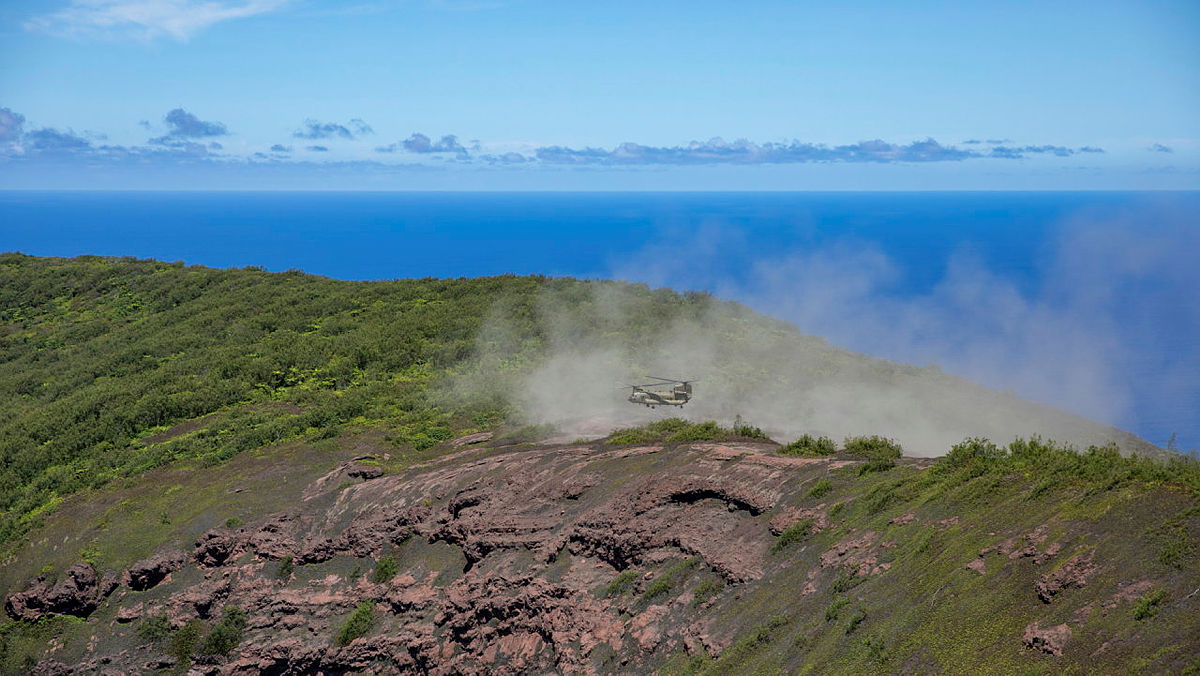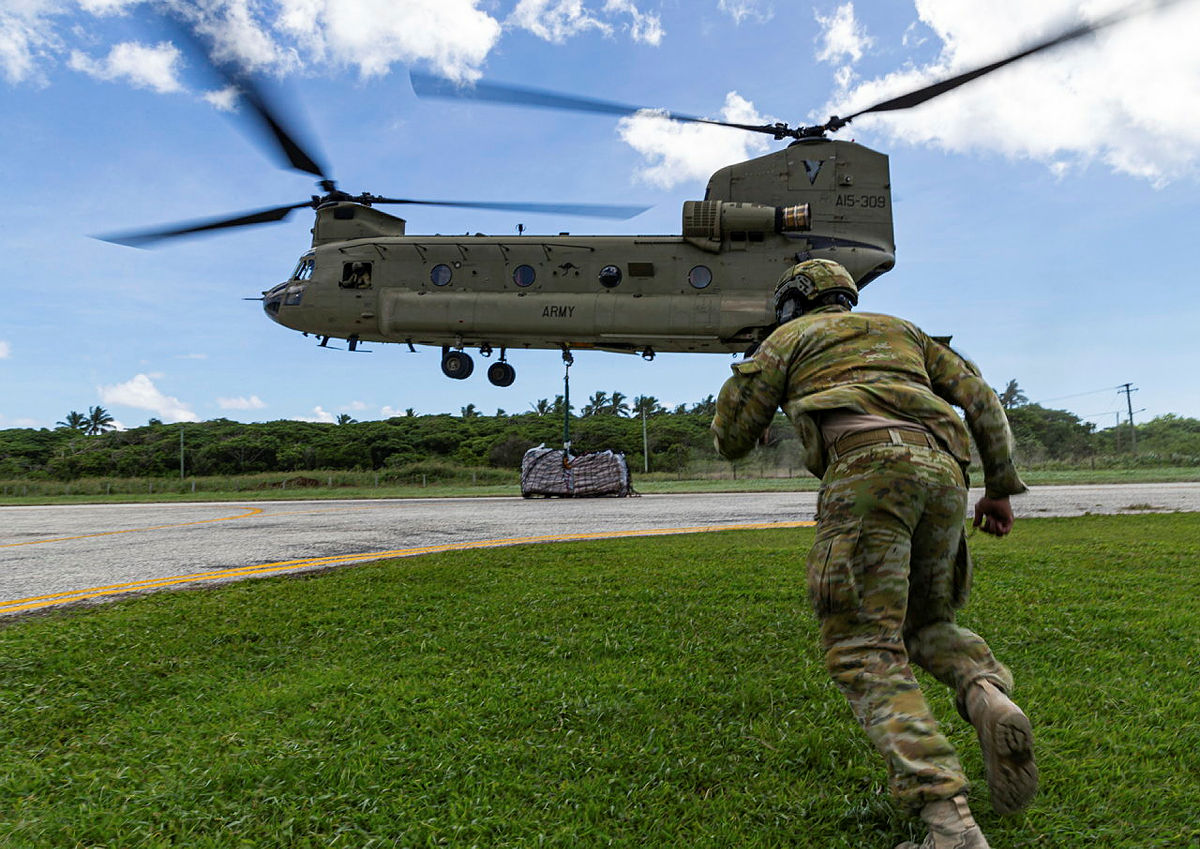The Pacific nation, still reeling from a volcanic eruption and tsunami last month, is emerging from lockdown following its first outbreak of the pandemic.
By Rhoda Kwan
First came a volcanic eruption, blanketing Tonga’s main island in thick layers of ash that contaminated water sources. Then came a tsunami, which destroyed homes, left piles of debris and ripped out vegetation, stripping parts of the country’s smaller islands completely bare.
Now, the South Pacific archipelago nation is emerging from lockdown amid its first coronavirus outbreak, compounding the disasters that took place last month.
“It happened so fast, and the general atmosphere of the people here is panic,” Seko Vaipulu, a resident in Malapo, a small village on the main island of Tongatapu, said shortly after the lockdown was announced 02 February, saying he “felt like a prisoner.”
Like many other remote countries in the Pacific Ocean — a strategically important region where the U.S and China are vying for influence — Tonga had largely kept the virus off its shores for much of the Covid-19 pandemic, thanks to border restrictions and quarantine requirements. But the volcanic eruption and the resulting tsunami on Jan. 15 have raised fears that the arrival of international disaster aid could bring the virus with it.
“We want one disaster, not two disasters at the same time,” said Drew Havea, vice president of the Tonga Red Cross Society.
Lockdown restrictions eased starting Monday, with retail businesses moving to reopen as officials consider next steps. A curfew remains in place from 6 pm. to 6 am., and in-person classes remain suspended.

The sudden lockdown this month came as no surprise to some Tongans, who have been watching the rising cases in neighbouring island nations with concern.
Kiribati, Samoa and the Solomon Islands have all had lockdowns recently after the virus breached their borders. The Cook Islands reported its first virus case 13 February, a month after it reopened its border to quarantine-free travel from New Zealand.
The outbreak in Tonga, driven by the more transmissible omicron variant, has grown quickly. The nation reported 24 new cases on Friday, bringing its total for the pandemic to 234.
Although the numbers are small by international standards, health experts and aid groups say such outbreaks could be “devastating” to countries made more vulnerable by fragile health care systems and high rates of non-communicable diseases, such as heart disease.
“The biggest hospital here won’t be able to handle it well” when Covid cases surge, Marvin Go, a resident of Tonga’s capital, Nukuʻalofa, said before the lockdown. “This is one of the problems that most people here are worried about.”
Two-thirds of the Tongan population is fully vaccinated, according to the Ministry of Health.
Before this year, the small island nation of around 105,000 people had reported only one virus case. The current outbreak began when two port workers tested positive, although it was unclear whether the infections were related to aid deliveries.
Stringent Covid protocols have been implemented on “no-contact” shipments of aid arriving in recent weeks from the U.S, the United Kingdom, Australia, China and Japan. Incoming supplies are isolated at Tongatapu’s wharf for 72 hours before they are distributed in the community.

After the lockdown announcement, Tongan Prime Minister Siaosi Sovaleni said the distribution of aid would continue, although front-line workers “will need to be more careful.”
Residents fear that Tonga, which relies heavily on imported supplies, will face shortages of food and drinking water in the coming months.
“Goods from overseas — especially food — take a lot of time nowadays to reach Tonga, and prices are sure to go up,” Go said.
The sudden lockdown has also hampered efforts to clean up after the tsunami, involving most of Tonga’s front-line workers, said Dr Paula Vivili, the deputy director-general of science and capability at the Pacific Community, an international development group.
“An outbreak now will not only be devastating from a Covid response perspective, but it will also significantly impact their ability to respond effectively to the recovery efforts,” he said in an emailed statement.
The World Bank estimated this month that the volcanic eruption, tsunami and ashfall had caused US$90 million in direct damage, equivalent to about 18.5 percent of Tonga’s gross domestic product. Sovaleni said Friday that repair work was almost completed on Tonga’s only undersea fiber-optic cable after it was severed during the volcanic eruption, severely disrupting local and international communications.
Aid to Tonga and other Pacific nations has become a matter of competition between the U.S and China, which has growing economic influence in the region. Tonga, which has been taking loans from China for more than a decade, is one of its biggest Pacific debtors.

Washington and Beijing have both donated Covid vaccines to countries such as Papua New Guinea and the Solomon Islands. They also appear to be prioritising general development aid and outreach to nations in a part of the world that Secretary of State Antony Blinken says will shape much of what happens this century.
“No region on Earth will affect the lives and livelihoods of Americans more than the Indo-Pacific,” he said Feb. 12, referring to the area from the U.S Pacific coastline to the Indian Ocean. He was speaking from Fiji, where he was the first secretary of state to visit in almost 40 years, as part of a Pacific tour meant to emphasize Washington’s renewed commitment to the region.
Blinken also said the U.S planned to re-establish an embassy in the Solomon Islands, where deadly protests late last year were driven partly by concerns over Chinese influence. The U.S has not had an embassy there since 1993.
The Biden administration’s Indo-Pacific strategy, released on 11 February, includes strengthening alliances and partnerships, battling climate change and bolstering security.
“We see our long-term future in the Indo-Pacific,” Blinken said. “It’s as simple and basic as that,” he said.
SOURCE: NBC NEWS/PACNEWS

















